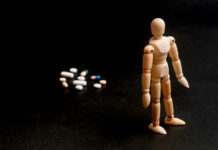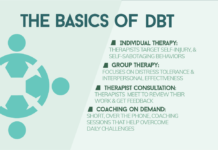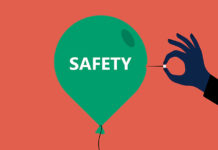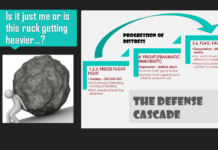David Foster Wallace: Suicide and the Death of Agency
Today is the 10th anniversary of David Foster Wallace’s suicide. While it’s not fair to build an entire theory on an incredibly complicated issue like suicide around one person, Wallace’s death should challenge the common narratives around suicide — that “mental illness” causes it and that “we can’t ever know why people do it.” Both of these are self-serving platitudes that are simply not true.
Three Suicides: Honoring Lives Lost to Benzodiazepines
I am still trying to reconcile what these chemicals are capable of, how the urge can morph into an action, how we maybe just don’t understand suicide all that well. For me, the suffering was so intense it was too painful to stay alive. I understand how my friends felt in their last moments.
New Study Casts Doubt on Efficacy of Ketamine for Depression
A new study, published this month in the Journal of Affective Disorders, investigated the effectiveness of weekly intravenous ketamine injections as a treatment for...
Suicide in the Age of Prozac
During the past twenty years, the American Foundation for Suicide Prevention and American psychiatry have adopted a "medicalized" approach to preventing suicide, claiming that antidepressants are protective against suicide. Yet, the suicide rate in the United States has increased 30% since 2000, a time of rising usage of antidepressants. A review of studies of the effects of mental health treatment and antidepressants on suicide reveals why this medicalized approach has not only failed, but pushed suicide rates higher.
Victim Blaming: Childhood Trauma, Mental Illness & Diagnostic Distractions?
Why, despite the fact that the vast majority of people diagnosed with a mental illness have suffered from some form of childhood trauma, is it still so difficult to talk about? Why, despite the enormous amount of research about the impact of trauma on the brain and subsequent effect on behaviour, does there seem to be such an extraordinary refusal for the implication of this research to change attitudes towards those who are mentally ill? Why, when our program and others like it have shown people can heal from the effects of trauma, are so many people left with the self-blame and the feeling they will never get better that my colleague writes about below?
Dialectical Behavior Therapy Reduces Self-Harm and Suicide Attempts
A new meta-analysis finds that DBT reduces self-harm, suicide attempts, and reduces the frequency of psychiatric crisis service utilization.
Robin Williams On Antidepressant at Time of Suicide
Robin Williams had "therapeutic" levels of the tetra-cyclic antidepressant mirtazapine in his blood at the time of his suicide, according to the coroner's report...
The Creativity and Suicide of Robin Williams: A Phenomenological Study
My purpose in writing this case study is not to suggest that creativity is a mere byproduct of trauma, or to deny the role of so-called mental illness in suicide, but to situate these phenomena within the context of human lives. To render them humanly (rather than medically) intelligible. With his mind and body disintegrating, Robin Williams took his life to thwart the eradication of self.
Suicide: A Permanent Solution to a Temporary Problem
Many people who have never been severely depressed might ask, “Why would anybody want to kill themselves?” After all, taking one’s life goes directly against the survival instinct that nature has programmed us with. For example, if you were walking across the street and saw a car coming towards you − your first instinct would be to jump out of its path. Yet, when the brain becomes overwhelmed with chronic, intense pain that seems to have no end, then suicide becomes not only a rational choice, but a compelling option. After all, if you are faced with the prospect of being in eternal hell, then taking your own life seems like an act of self-love, not an act of self-detruction.
Life & Death: Robin Williams, Suicide “Prevention,” and the World as We Know...
I’ve been very, very sad lately. Some might even call me “depressed.” There are a lot of reasons. Robin Williams’ suicide is not one of them. Don’t get me wrong. I’m not happy about what has come of him. I have fond memories of Mork and Mindy, just like everyone else over the age of 30 or so. It is unquestionably sad to learn he was hurting so much, and even harder to reconcile that with his relentlessly upbeat public persona. On a personal level, it hurts at least a little to know that someone who experienced that level of success (about which most can only dream) also fell so far and experienced so much despair.
ASIST Suicide Prevention Training: “Safe” for Who?
Ever since the cops and CPS were called on me by someone at an ASIST Suicide Prevention training, I've been trying to see it all as a gift. What better proof to counter those who claim it's "safe" to tell than what happened to me? What better evidence that our system responses are seriously off track? It wasn't safe. Not for me.
The Temptation of Certainty: David Foster Wallace, Suicide and Psychiatric Drug Withdrawal
While increasing numbers of Americans are being prescribed antidepressants, the Centers for Disease Control reports that suicide rates increased 28% from 1999 to 2010. Trained professionals remain unable to predict who is at risk. Their guess is as good as chance.
Hegemonic Sanity and Suicide
The “good” suicide attempt survivor wakes up in a hospital bed bathed in beautiful natural light, surrounded by the people who love them most, and they realize that their thinking was flawed and all those unsolvable problems can actually be solved if they are just compliant with medication and therapy. And then there's the “bad” suicide attempter who is angry that they lived, who challenges the status quo.
Scientists Clarify Risks of Augmenting with Antipsychotic Medications for Depression
The researchers found that while antipsychotic drugs may be slightly more effective than alternative antidepressants, they come with a much higher side effect burden.
The Paradox of White Americans’ Mental Health
Are White Americans’ poor mental health outcomes caused by Whiteness?
On the Urge to Take My Life, and My Decision to Take It Back...
I am alive today in the most intense, sometimes painful, always beautiful of ways, and one of the many reasons I credit for my life is this: I am a failed product of ‘Suicide Prevention.’ For this, I am eternally grateful. While this statement may sound like a confusing paradox, I’d like to explain what I mean.
Against the Odds: ‘Unimproved Schizophrenic’ to Yale PhD
Forty years after I had first been admitted to the hospital, I was ready to confront my past. So, I sent for my hospital records, and I read them. As an experienced clinician, I recognized immediately what the doctors hadn’t been able to see in 1960: my problem wasn’t ‘schizophrenia’ but PTSD, connected with incest.
Pilots Crashing on Antidepressants: A (Not So) Brief History
With the current focus on the possible contribution of psychoactive drugs to the crash of GermanWings flight A320 on Tuesday, March 24, it is useful to identify potential links between the effect of the antidepressants and the events. In all 47 cases listed on SSRIstories, the pilots were taking antidepressant medications, mostly SSRIs, often in combination with other medications and sometimes with alcohol.
Alternatives to Suicide: Strategies for Staying Alive
For more than 7,300 days of my life, waking up the next morning required me to make a conscious choice to diligently pursue something — anything — other than my impulse to die. Maybe the best teachers of how to avoid suicide will not be the people who are afraid someone else will die, but those of us who can explain how and why we regularly choose to live.
Increased Suicidality in Cymbalta Trial for Fibromyalgia in Teens
A new as-yet-unpublished trial of duloxetine (Cymbalta) for fibromyalgia has presented more evidence of suicidal events in teens.
From Self Care to Collective Caring
As a trauma survivor growing up in various adolescent mental health systems, I never learned any useful self-care tools or practices. I was taught that my current coping skills (self-injury, suicidal behavior, illicit drug use) were unacceptable, but not given any ideas as to what to replace them with. No one seemed to want to know much about the early childhood traumas that were driving these behaviors. Instead, I collected an assortment of diagnoses. I was told that I would be forever dependent on mediated relationships with professionals, and an ever-changing combination of pills. The message was that my troubles were chemical in nature and largely beyond my control.
Large Rigorous Study Debunks Popular Gene-Environment Theory of Depression
A large and rigorous meta-analysis fails to find support for the gene-environment interaction theory of depression.
Zel Dolinsky: I Have a Right to “Death With Dignity”
Researcher Zel Dolinsky once taught at medical school and worked as a medical writer in the pharmaceutical industry. In his last emails, he told of how the adverse effects of psychiatric drugs led him to choose to end his life.
The FDA Is Hiding Reports Linking Psych Drugs to Homicides
In my wildest dreams, I could never have imagined being drawn into a story of intrigue involving my own government’s efforts to hide, from the public, reports of psychiatric drugs associated with cases of murder, including homicides committed by youth on the drugs. But that is precisely the intrigue I now find myself enmeshed in.
Anatomy of a Suicide: Stress and the Human Condition
The Defense Cascade is a survival framework that evolutionary researchers are exploring as an explanation for extreme states that many people experience. It can help explain why chronic stress can make us feel like ending our life is the only reasonable way out.


























